Success Story Assetbank
Journeying to a Wireless Future
Challenge
Wireless charging means being able to charge an electric vehicle without having to plug it in, which can be easier than wired charging, and negates the need for cables. This means there are no trailing cables or heavy connectors which reduces clutter and trip hazards. It’s accessible for people with disabilities, more convenient for fleet charging, and can even enable autonomous vehicles to charge themselves. Charging could be completed at taxi ranks and short-stay car parks like when visiting a supermarket.
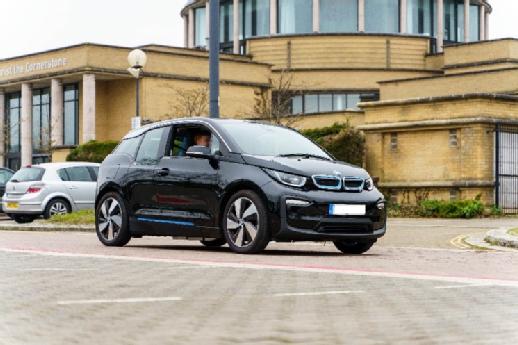
In wireless inductive charging systems, high frequency electricity is supplied to a ground pad giving rise to a pulsating magnetic field. This allows power to be transmitted contactlessly via the electromagnetic link to the receiver pad embedded in the base of the vehicle and following rectification it is fed to the DC terminals in the vehicle. A sophisticated control system manages the flow of power to the battery.
Currently, there is no UK supply chain for this technology. High Value Manufacturing Catapult at WMG set out to address this. WMG took on the challenge to design, build and retrofit to an electric vehicle a fully UK-made 20kW wireless charging system. Along with honing expertise as part of this process, engaging with potential UK supply chain partners was a key priority, recognising that many elements of wireless charging systems would be new to potential UK suppliers. WMG was able to work with a range of companies in fabricating and assembling parts for the system (pad-makers, potters, etc.), mechanical integration (retrofitters), electrical integration (EV charger specialists) and back-office (communications, app interface, metering and billing specialists).
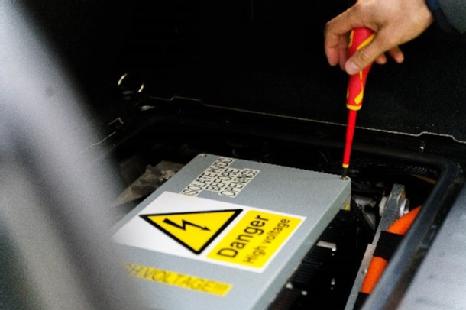
Solution
WMG designed, assembled, tested and delivered a working prototype of a 20kW rated wireless charging system, retrofitted and electrically integrated on a BMW i3. Supply chain partners were engaged to construct various parts of the system according to WMG’s specification. WMG contributed expertise in wireless charging, use of a high-performance computing cluster, along with purpose-built analytical design scripts to explore the large potential design space and find an electromagnetic and resonant circuit configuration that would meet requirements. WMG’s laboratory facilities were used to assemble and test the overall system.
The project was a significant step up from previous work, taking a wireless system beyond the laboratory bench and integrating it with a vehicle.
The physical delivery of the wireless charging system was performed under the MK GUL (Milton Keynes Go-Ultra-Low) project, where WMG was contracted through eFIS (an ARUP subsidiary) by Milton Keynes Council for delivering electric vehicle charging or charging support technology. The resulting wireless charging system was publicly demonstrated in three events in Milton Keynes in a central car park location. The demonstration system is mobile (with no permanent ground works on site) so can be used in various locations.
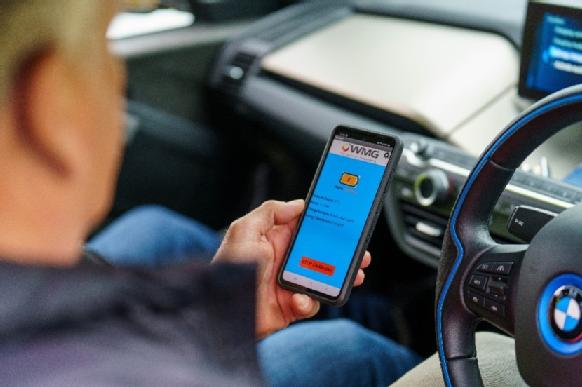
During the demonstration events, members of the public and representatives of the project’s organisations drove the electric vehicle around the car park and aligned it in its parking space containing the charging ground pad. Then they initiated, monitored and terminated the charging process through a mobile app developed by WMG.
Impact
The prototype wireless charging system demonstrated is thought to be the first UK-designed and built wireless charging system to have been retrofitted to an electric vehicle.
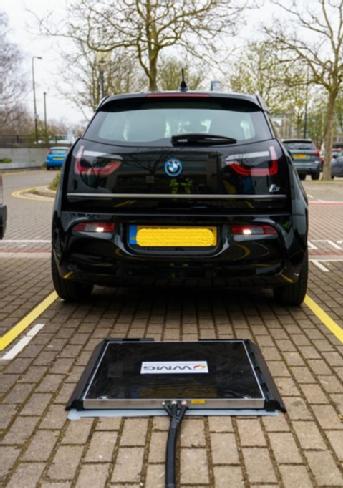
As part of follow-on work relating to the Innovate UK OSRIC project, a second copy of the wireless charging system is being constructed for which further UK companies are being engaged and knowledge transfer occurring so that they can understand the assembly activities that were carried out at WMG.
WMG has a notable track record and experience in delivering a number of wireless charging projects, although this is the first one which has been taken out of the lab setting and into a fully functional practical application. WMG took a leading role in the design, development and knowledge transfer regarding wireless charging technology.
Future research will explore further aspects of systems to make them more commercially acceptable and easier to adopt. Also extending research capabilities into the high and very high frequency wireless charging systems, alongside continued engagement with industry partners for the development of a UK supply chain. WMG is not seeking to manufacture systems directly, so working alongside UK-based SMEs will be critical to getting the technology applied in “real life” and commercialised. WMG therefore invites more commercial partnerships in this sector.
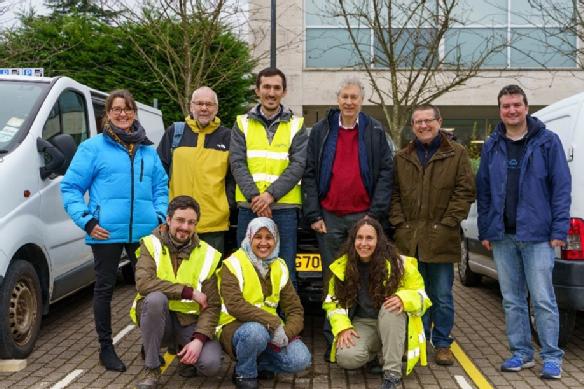
Pictured: Members of the project team from WMG (University of Warwick), eFIS (ARUP), and Milton Keynes Go-Ultra-Low.
